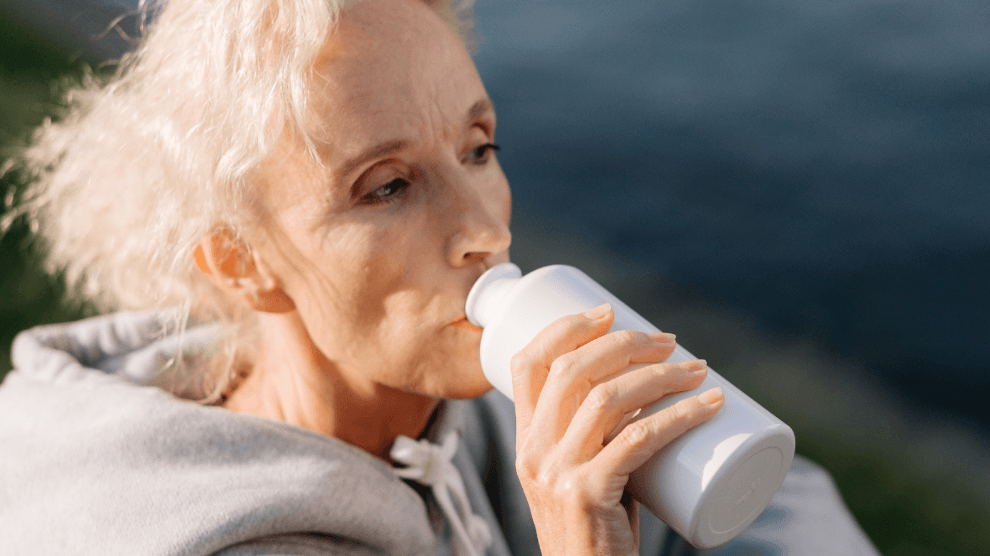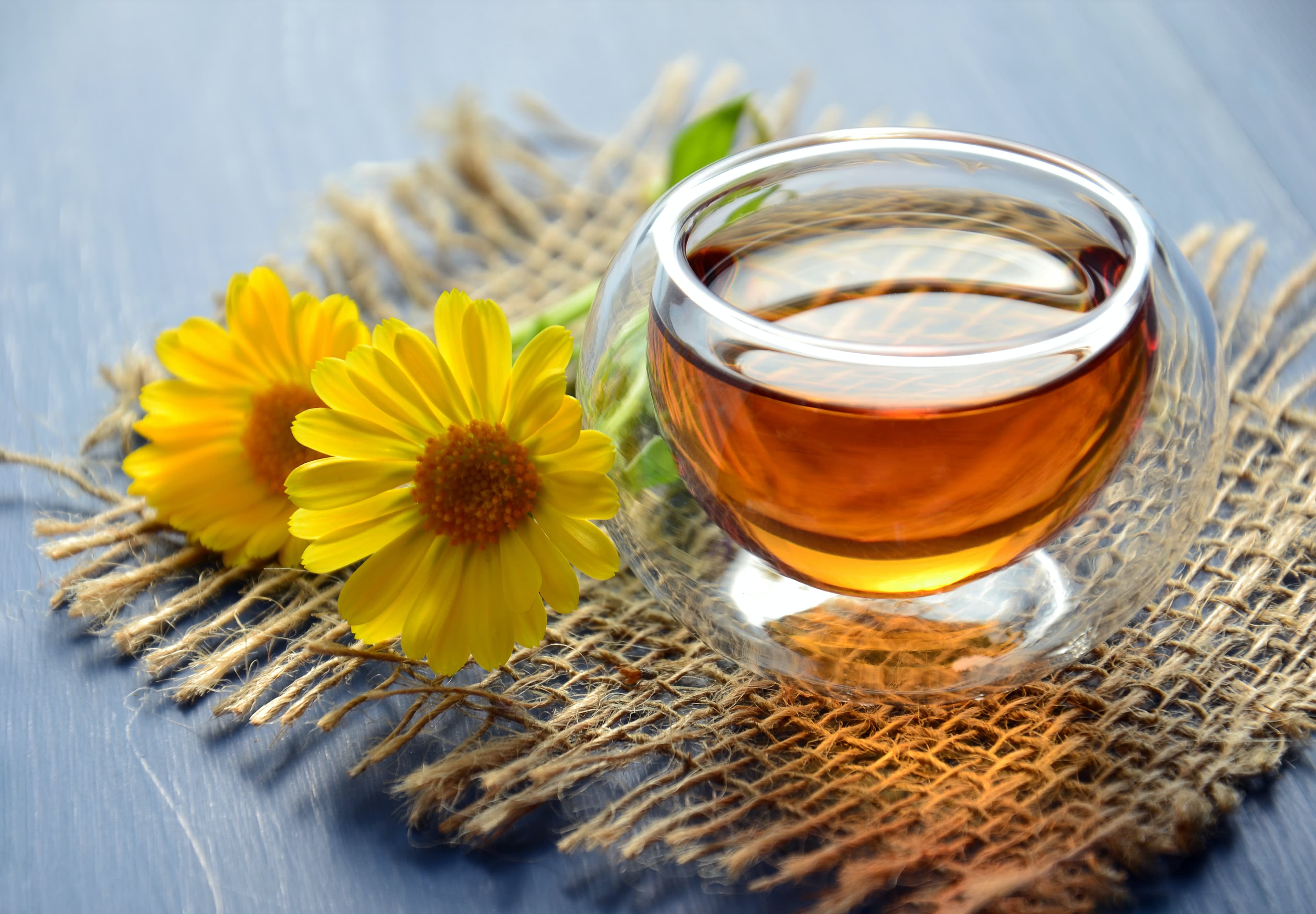How to Keep Your Loved Ones Hydrated: Essential Tips for Caregivers

Written by Brianna Maguire on Mon Jul 31 2023.

Does your loved one have specialized needs like dysphagia or Alzheimer's? Are you worried about their risk of dehydration? As a caregiver, it's crucial to understand how to prevent dehydration in older adults, especially those who have difficulty swallowing. In this article, we'll guide you through practical strategies and valuable tips to ensure your loved one stays hydrated and healthy. Let's dive in!
Why Is Dehydration a Challenge in Older Adults?
Dehydration poses a significant risk to older adults, and this issue becomes even more critical when combined with conditions like dysphagia. As we age, our bodies naturally lose water more rapidly, making older adults more susceptible to dehydration. Additionally, certain medications, chronic illnesses, and decreased thirst perception can further exacerbate the problem.
For individuals with dysphagia, the act of swallowing liquids, including water, can be extremely challenging. This can lead to inadequate fluid intake, putting them at an even higher risk of dehydration.
Jill Seladi-Schulman, Ph.D., says that for aging adults, staying hydrated is crucial to avoid complications like constipation, electrolyte imbalances, kidney problems, and balance issues.
Also, according to the National Library of Medicine, the prevalence of dehydration among hospitalized individuals aged 65 years and above can range from 6% to 30%, depending on the specific definition used.
As a caregiver, it's essential to address this challenge proactively to ensure your loved one receives the hydration they need.
How Do I Know If My Loved One Is Becoming Dehydrated?
Recognizing the signs of dehydration is crucial for caregivers. Keep an eye out for the following indicators:
Dry mouth and throat: If your loved one complains of dryness in their mouth or throat, it may be a sign of dehydration.
Dark-colored urine: Dark urine is a common symptom of dehydration. Encourage your loved one to drink more fluids if they notice this change.
Fatigue and weakness: Dehydration can lead to feelings of fatigue, weakness, and reduced energy levels.
Dizziness or lightheadedness: If your loved one experiences dizziness or lightheadedness, it may indicate dehydration.
Confusion or disorientation: Dehydration can affect cognitive function, leading to confusion or disorientation.
If you notice any of these symptoms, it's essential to take immediate action to rehydrate your loved one.
How Do I Keep My Loved One Hydrated?
Offer fluids regularly: Encourage your loved one to drink fluids throughout the day. Provide a variety of options such as water, herbal tea, or clear broths. Consider using a timed reminder system to prompt daily fluid intake.
Use thickened liquids if needed: For individuals with dysphagia, drinking water can be challenging. Consider using products like Thick-It food and drink thickener or pre-thickened water to ensure easier consumption. Laura M. says: “This is a wonderful product, I add Thick-It to my mother’s drinks throughout the day to help keep her hydrated. Without it, she struggles with choking on liquids.”
Try hydration products for quick replenishment: In cases where immediate hydration is required, consider using products from the Sqwincher Brand. They offer convenient options like water add-ins, freezer pops, and "fast packs" that only require water to prepare. Look for zero-sugar options to accommodate specific dietary needs.
Include hydrating foods in their diet: Hydration isn't just about drinking fluids. Incorporate hydrating foods such as watermelon, cucumbers, oranges, and soups with high water content into your loved one's diet.
Ensure a supportive environment: Make sure your loved one has easy access to fluids by keeping a water bottle or cup within their reach at all times. Provide a straw or a sippy cup if it helps with their drinking ability. Monitor the temperature of the room and ensure it's comfortable to encourage drinking. Additionally, be mindful of their medication schedule, as some medications can increase the risk of dehydration. Consult their healthcare provider if you have any concerns.
Create a hydration schedule: Establish a routine for fluid intake by setting specific times for drinking. This can help your loved one develop a habit of regularly consuming fluids throughout the day. Consider using visual cues or reminders, such as a chart or alarm, to reinforce the schedule.
Make fluids more appealing: Some individuals may be more inclined to drink if the beverages are flavored or have a pleasant aroma. Experiment with infused water, herbal teas, or adding a slice of lemon or cucumber to enhance the taste and make it more enticing.
Monitor their water intake: Keep track of how much your loved one is drinking each day. This can be done through a simple log or by using mobile apps designed for tracking daily fluid intake. Monitoring their intake will help you identify any patterns or issues and allow you to make adjustments as needed.
Be aware of signs of swallowing difficulties: If your loved one has dysphagia or other swallowing difficulties, it's important to be vigilant for signs of aspiration or choking while drinking. Consult with a speech therapist or a healthcare professional for guidance on safe swallowing techniques and appropriate fluid consistencies.
Communicate with their healthcare team: Stay in regular communication with your loved one's healthcare team, including their primary care physician, speech therapist, or nutritionist. They can provide valuable insights, recommendations, and guidance specific to your loved one's condition and needs.
Need more information?
For additional guidance on nutrition and feeding for older adults, you can explore other articles in our resource center here.
If you have specific questions or concerns, our expert Care Team is available to provide personalized assistance. Call us at (800) 696-CARE.
Conclusion:
As a caregiver, ensuring your loved one stays hydrated is crucial for their overall health and well-being. By understanding the challenges associated with dehydration in older adults, particularly those with swallowing difficulties, and implementing the tips provided, you can play a vital role in preventing dehydration and promoting optimal hydration.
Remember, staying hydrated is not just about providing fluids—it's about creating a supportive environment, offering alternative options, and maintaining regular communication with healthcare professionals. Your dedication and efforts will make a significant difference in the health and quality of life of your loved one.
Other Articles You May Like

The Best Caregiving Items for a Stress-Free Summer of 2025
The summer season is about getting outside, relaxing, and spending time with family and friends. But for seniors, the heat and humidity can present potentially serious risks. Fortunately, there are a variety of products designed to make seasonal caregiving easier. To mark the summer solstice, we've highlighted several in our latest article.
Read More >
8 Thirst-Quenching Herbal Teas for a Refreshing Summer
During the warm summer months, it’s essential you stay hydrated. But drinking the recommended eight glasses of water a day isn’t always easy. Herbal teas provide a burst of flavor without the negative side effects of sugary drinks. Plus, they’re affordable, caffeine-free, and hydrating.
Read More >
Brianna Maguire heads up Carewell’s Customer Care Team, and serves as a resource for caregivers that need support. Whether it’s helping customers decide which products are best for their needs, answering caregiver questions, or just providing a shoulder to lean on on a tough day, her job is to make caregivers’ lives easier.